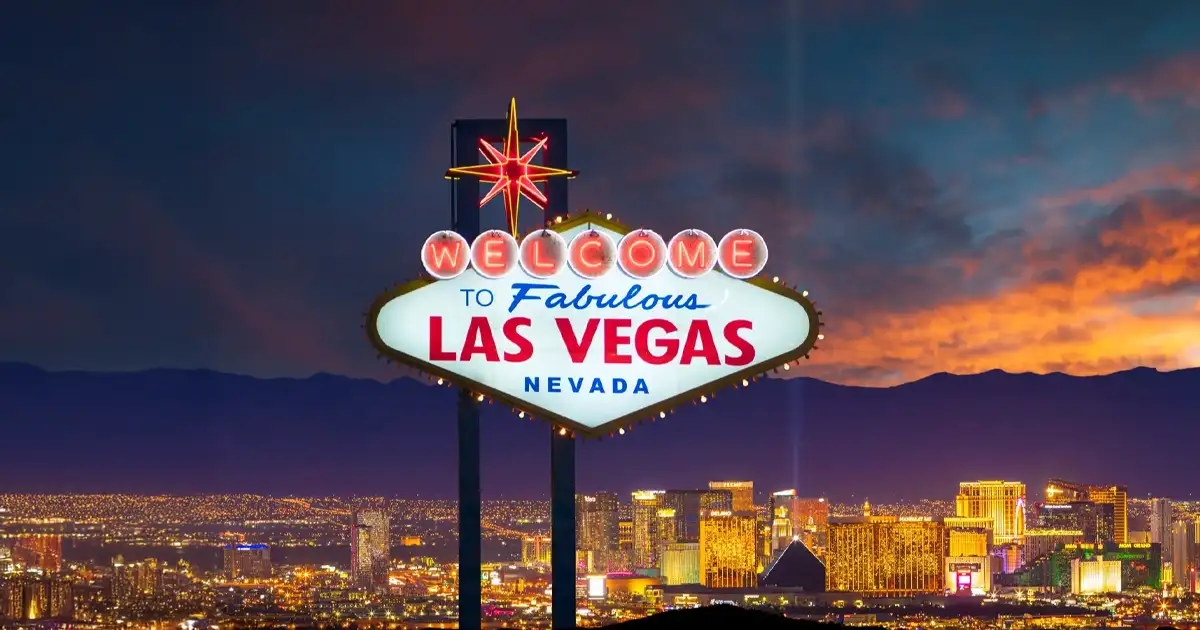“Fabulous 5-Day Sale”: Vegas reinvents itself
Las Vegas caused a sensation with its Fabulous 5-Day Sale, an exceptional sales period that transformed the city into a veritable magnet for visitors. Hotels, restaurants, shows and attractions put on unprecedented offers, giving a spectacular boost to local tourism and creating an unprecedented buzz.
An unprecedented operation to revitalise Las Vegas
The announcement came on 22 September 2025: for the first time in its history, the city of Las Vegas was launching a major sales period, dubbed ‘The Fabulous 5-Day Sale’. Conceived by the Las Vegas Convention & Visitors Authority (LVCVA), the operation ran until 26 September, with the aim of boosting flagging tourism.
This city-wide sales period offered spectacular discounts at hotels, restaurants, shows, attractions and experiences in the city of gambling. In fact, over 160 exclusive offers were mobilised to seduce potential visitors.
But behind the ambition and the headlines, the question remained: was the initiative really going to make a difference, or was it just going to be a publicity stunt?
Digital engagement: impressive figures
The day after the operation, the digital results were spectacular. The official VisitLasVegas.com website saw its traffic increase almost fourfold, compared with the average for previous weeks.
What’s even more remarkable is that redirections from the sales period page to hotel booking engines have increased 120-fold compared with a typical week in 2025. The amount of time spent on the site is now almost five times greater than usual.
According to Kate Wik, Marketing Director of the LVCVA, travellers weren’t just visiting the page; they were staying engaged. This data, she says, confirms both a strong demand for the offers and Las Vegas’ ability to appeal to even the most discerning of internet users.
A comparison was even made: the interest generated by this sales period exceeded, according to the managers, the combined performance of Black Friday and Cyber Monday.
Offers: from luxury to bargains
The concept of the sales period was simple: to offer deals in all segments, from luxury to popular experiences. Among the promotions on offer: up to 50% off rooms at establishments in the Caesars group, restaurant or spa credits at certain palaces, and even the waiving of parking charges at certain establishments.
For example, the Fontainebleau offered a 20% discount, free resort fees and a USD 50 daily food credit with free parking. Other smaller hotels offered all-in packages with meals and experiences included.
But the promotions were not limited to accommodation. Numerous restaurants, shows (Cirque du Soleil, concerts), attractions, excursions and transport joined in the sales period. The Las Vegas Monorail, for example, offered a ‘buy one get one half price’ ticket.
This plunge into the world of bargains was designed to reaffirm the message that Las Vegas is not just a luxury city for the few, but a destination accessible to all. The challenge: to convince visitors who, for several months, had been seeing costs (resort fees, parking, extras) as a real brake.
Between hopes and reservations: measured expectations
Despite the enthusiasm, not everyone shares this triumphant vision. In the days following the deal, LVCVA itself was cautious. The precise financial results, in particular the conversion of visits into actual bookings, are still being analysed.
Dr. Marla Royne Stafford, Professor of Marketing at the University of Nevada, Las Vegas (UNLV), observes a clear increase in activity, but no conclusive evidence of an increase in bookings.
It also highlights a contextual factor: the operation took place in the midst of national uncertainty, with federal blockades likely to inhibit consumer behaviour.
Other critics point to a strategy based too much on digital, with no guarantee that the seizable offers will be sufficient to compensate for the disaffection caused by the perception of ‘excessive prices’ in Vegas.
What next?
In the coming weeks, the LVCVA plans to work with its hotel and attraction partners to measure the real impact: sales, occupancy rates, customer behaviour and feedback. Even before the launch, Steve Hill suggested that operations of this type could become regular tools if the results prove positive.
In a tourism landscape faced with global competition, economic instability and demanding travellers, the strength of such a strategy lies in its repetition and credibility. A one-off offer attracts attention, but the challenge for Las Vegas will be to reinfect trust over the long term.


